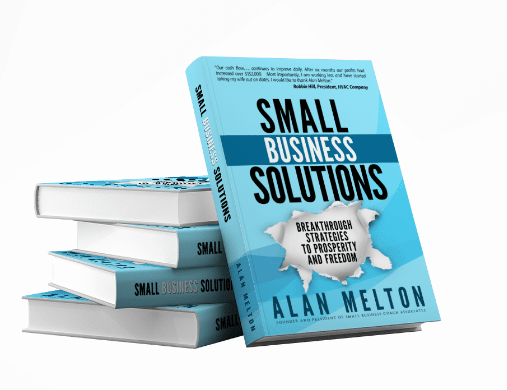VIEW BY TOPIC
- Finding Customers
- Business Systems
- Managing Employees
- Leadership
- Managing Money
Related Posts

Ready to Grow Your Business Fast?
Here’s How I Grew Five Businesses, and Eventually Sold One to a Fortune 500 Company.

Creating a Successful PPC Campaign for Small Businesses
In today’s rapidly evolving digital landscape, PPC ads have emerged as a powerful tool for driving targeted traffic and generating valuable leads. Yet, for small businesses with limited resources, navigating the complexities of PPC can pose significant challenges.
But don’t worry, this article will provide expert insights, proven strategies, and practical tips to help you create a successful PPC campaign that yields tangible results, maximize your budget, and propel your business towards growth and success.
What is PPC?
PPC, short for pay-per-click, is an advertising model where businesses pay a predetermined fee to display their website on the SERP when users enter relevant keywords or phrases into the search engine.
Through PPC, you can create ads alongside organic search results, enticing visitors to click and visit your website. The key characteristic of PPC is that you only incur costs when someone clicks on your ad, making it a cost-effective and performance-driven advertising approach for businesses.
How Does It work?
PPC operates as a paid advertising model within search engine marketing (SEM). In this system, advertisers are charged only when users engage with their ads by viewing impressions or clicking on them.
Having excellent PPC management for small businesses will help effectively target the right prospects and convert them into customers.
It will help them display their ads to potential customers and pay solely for the interactions those ads generate, making it a cost-effective and performance-driven advertising approach.
6 Benefits of PPC Advertising for Small Businesses
If you have a small business, PPC is an invaluable tool to help you reach your marketing goals. Below are the benefits:
1. Targeted Reach
PPC enables small businesses to tailor their ads to specific demographics, locations, and keywords, ensuring their message reaches the desired audience effectively.
2. Cost Control
Small businesses exercise complete control over their budget, setting spending limits and paying only when someone clicks on their ads, optimizing cost-efficiency.
3. Immediate Results
Unlike organic search strategies, PPC delivers immediate visibility and results, driving traffic to small businesses’ websites and potentially leading to conversions.
4. Measurable ROI
Through comprehensive analytics and tracking tools, PPC allows small businesses to measure their campaigns’ ROI accurately. This data empowers them to optimize their strategies and maximize the effectiveness of their ads efforts.
5. Flexibility and Scalability
PPC campaigns can be easily adjusted, enabling small businesses to adapt to market changes, test different strategies, and scale their advertising efforts accordingly.
6. Brand Exposure
Even if users don’t click on the ads, PPC increases brand exposure by displaying small businesses’ names and messages prominently on the search engine results page.
Overall, PPC empowers small businesses to compete effectively in the digital landscape, reach their target audience, and achieve their marketing goals.
12 Simple Ways to Advertise Effectively with PPC for Small Businesses
Discover 12 straightforward yet powerful strategies to advertise your small business using PPC effectively.
1. Analyze Search Term Reports
This feature reveals the search terms and provides a glimpse into their popularity. Utilizing this information can optimize your PPC strategy by adding relevant search queries that were initially overlooked.
This often-underestimated tool can significantly benefit small businesses in their PPC advertising efforts, boosting visibility and maximizing results.
2. Craft Compelling Ad Copy for Conversion
Ensure that your ad copy aligns closely with the targeted keywords. A typical PPC ad for Google Ads consists of:
- Headline 1 (30 characters)
- Headline 2 (30 characters)
- Description (80 characters)
- URL/Path 1 (15 characters)
- URL/Path 2 (15 characters)
Use impactful language to capture attention and incorporate compelling CTA time-limited offers or solutions to specific customer problems.
3. Utilize Negative Keywords
Negative keywords ensure that small businesses’ ads are displayed to qualified visitors, and that their budget is not wasted on clicks from irrelevant searches.
Negative keywords can be tailored to each individual campaign, and they should include words that are inapplicable to your business or offerings.
4. Optimize Landing Pages for Better Performance
Once you have selected relevant keywords and crafted persuasive ad copy, optimizing your landing pages becomes crucial to driving conversions. To enhance your landing pages, focus on the following aspects:
- Clear Call to Action
- Showcase Competitive Advantages
- Optimize Page Load Time
- Offer Incentives
These efforts will boost your click-through rate and empower visitors to take the desired action.
5. Increase Bids for High-Converting Keywords
By understanding these high-converting keywords, you can optimize your ads more efficiently, resulting in improved outcomes. You must also closely monitor the keywords that generate the most sales for your business.
Increasing bids on these specific keywords can elevate your ad rankings and outperform your competitors in the auction, maximizing your chances of success.
6. Enhance Quality Score for Improved Results
The quality score, along with your maximum bid, influences the ranking of your ad in the auction. Several factors impact your quality score:
- Click-Through Rate (CTR)
- Keyword Relevance
- Ad Copy Relevance
- Landing Page Quality and Relevance
You can enhance your quality score ranking by prioritizing quality and relevance in your PPC campaigns.
7. Conduct Split Testing for Optimization
Google allows you to allocate a portion of your budget for experimental ads, running them alongside your top-performing ads to determine their performance.
You will be able to decide whether to implement the changes suggested by the experimental ads or discard them by analyzing the data.
8. Harness the Power of Dynamic Search Ads

Google’s Dynamic Search Ads feature can be incredibly beneficial if you haven’t enlisted a PPC creative expert to monitor your PPC ads and prevent ad fatigue constantly.
This innovative ad creation tool leverages algorithms to automate much of the process. It works like a “smart ad” as Google scans your website for frequently used keywords and matches them with relevant consumer search queries.
9. Leverage Google Analytics Insights
Google provides valuable free tools for business owners and advertisers to access essential online data, including PPC campaigns and website visitors.
Beyond PPC, one such tool is Google Analytics, it will allow you to gain deeper insights into your website’s performance.
By adding tracking codes to your website, you can seamlessly connect your site to Google Analytics, unlocking a wealth of information to understand user behavior, track conversions, and make data-driven decisions to enhance your online presence and marketing strategies.
10. Retarget Website Visitors for Increased Engagement
After setting up your infrastructure, tag website visitors to retarget them with compelling display ads, encouraging them to purchase.
Remarketing campaigns allow you to engage with visitors who left your site without converting, using targeted PPC ads to consistently remind them of your brand and encourage them to revisit.
11. Monitor Online Search Impressions Percentage
Within the platform, you can quickly assess the percentage of online impressions your campaigns obtain. This handy feature helps ensure your ads receive maximum exposure for specific keywords.
Based on your findings, you can increase bids or enhance ads for improved relevance, aiming to achieve a higher impression percentage.
12. Keep a Close Eye on Your Quality Score
The quality score evaluates the effectiveness of your ad and landing page in addressing a user’s search query. Ads with a low-quality score result in higher costs per click and inferior performance compared to ads with a higher-quality score.
Enhancing your quality score can be achieved through various strategies, such as incorporating the keyword directly into the ad copy.
Final Thoughts
When it comes to Google PPC campaigns, small businesses should pay special attention to their budget while ensuring maximum ROI.
By using the strategies outlined above, small businesses can successfully launch and manage their PPC campaigns, allowing them to maximize visibility for their products or services and ensure they reach the right audience. Doing so can help them build a loyal customer base and grow their business in the long term.














